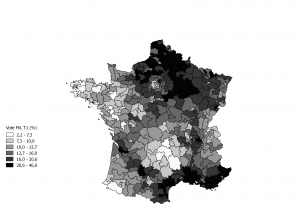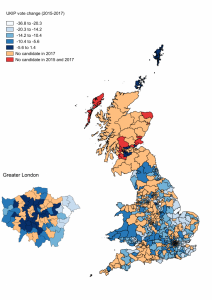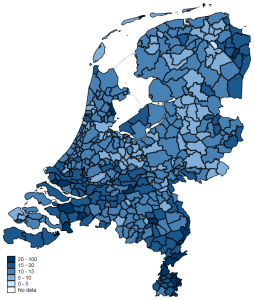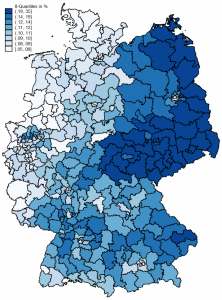Elections in Europe: great expectations.

2017 was a year of high-profile national elections in Europe, in which the Radical Right was expected to do particularly well. Balanced and neutral as ever, the Express claimed that the votes in France, Germany, and the Netherlands could DESTROY the EU. The Independent also flagged up the Dutch, German, and French elections, but added the Italian referendum, the Austrian presidential elections (both actually in 2016), and the British local elections, which, in hindsight, seems particularly quaint. Most observers missed the much more problematic Austrian parliamentary elections, and no one (arguably including the PM) expected Britain to go the polls, again.
SCoRE election data from four European countries

For better or worse, the individual-level data collection for our project on sub-national context and radical right support in Europe (SCoRE) was scheduled for 2017 anyway. In SCoRE, we try to bring together particularly fine-grained official data on living conditions (including immigration, unemployment, local economic growth, and access to basic services) with survey data on right-wing attitudes and other attitudinal and behaviour variables that are geo-referenced. In other words: we can see how the way people think is linked to where they live, and what it is like there. And with the British PM’s decision to have a snap election, we became an election study on the side.
All politics is local: a close look at regional patterns of radical right voting in France, Germany, the Netherlands, and the UK
What sets SCoRE apart from other projects is its focus on regional and even local patterns of voting. To showcase this, my colleagues have produced a series of reports on the elections in Europe from this particular angle.
Will Allchorn and Jocelyn Evans (University of Leeds) study the switch from UKIP to the Conservatives in the 2017 election. One of their most interesting findings (I think) is that “the switchers are more strongly anti-European suggesting a tactical preference for a governing party able to deliver Brexit.
Eelco Harteveld and Sarah de Lange show that support for the Dutch Radical Right is not strongly correlated with a rural-urban divide. The PVV thrives in areas that are economically deprived and suffer from demographic stagnation, independent of urbanisation.


In Germany, the AfD is very much an eastern party. However, Carl Berning demonstrates that in the 2017 election, the
AfD did also well in the south-western states. A (perceived) sense of local decline seems to be a major factor.
Finally, a strong rural/urban divide sets in radical right voting is characteristic for France. Gilles Ivaldi and Jocelyn Evans show that support for the Front National was broken up into two distinct clusters, one in the northern rust belt, the other in the south.
Discover more from kai arzheimer
Subscribe to get the latest posts sent to your email.


RT @kai_arzheimer: From the vault: Elections in Europe in 2017: four reports https://t.co/o4J545e0ig
RT @kai_arzheimer: From the vault: Elections in Europe in 2017: four reports https://t.co/o4J545e0ig
RT @kai_arzheimer: From the vault: Elections in Europe in 2017: four reports https://t.co/o4J545e0ig
RT @kai_arzheimer: Still relevant: elections in Europe in 2017: four reports – kai arzheimer https://t.co/o4J545e0ig https://t.co/uyKdxgwhVC
RT @kai_arzheimer: Elections in Europe in 2017: four reports – kai arzheimer https://t.co/o4J545e0ig https://t.co/s5Jasn6NSR